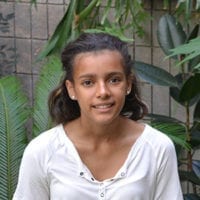
“A QTL Containing Maize ETHYLENE INSENSITIVE 2 Regulates Two Antifungal Metabolites and Resistance Against a Common Fungal Pathogen, Fusarium Graminearum”
Project Summary
Resistance to fungal pathogens is an important plant defensive and crucial for their survival and reproduction. Ethylene takes part in plant responses to necrotrophic pathogens, such as Fusarium graminearum. One way in which ethylene contributes to fungal resistance is by regulating the production of defensive plant metabolites. Previously, a quantitative trait locus (QTL),was discovered by genetic mapping with maize (Zea mays) B73 x Mo17 recombinant inbred lines, was shown to control both expression of ETHYLENE INSENSITIVE 2 (EIN2) and accumulation of the defensive metabolites smiliside A and Smigliside C. The main objective of this project was to validate this genetic mapping result with a collection of near isogenic lines from the same two parental maize inbred lines, Mo17 and B73. Specifically we found that the smiliside A/smigliside C ratio can only be increased by 1-aminocyclopropanecarboxylic (1-ACC, an ethylene biosynthetic precursor) in near isogenic lines that carry the Mo17 allele at this locus. These near isogenic lines also exhibited higher resistance against F. graminearum. This result demonstrates that ethylene regulation of smiliside A/smigliside C metabolism is dependent on the identified genetic locus and that it contributes to resistance against F. graminearum.
My Experience
My experience in the Jander lab at the Boyce Thompson Institute has been very beneficial for me, both academically and personally. With the help of my lab mates and specifically my mentor I have learned a wide array of new techniques including, DNA extraction, qPCR, colony PCR, and RNA extraction. My mentor and all the members of my lab were very supportive and welcomed me, encouraging me to ask questions and be involved. Overall, the experience allowed to get a firsthand look of what working in a lab is really like and better understand potential majors and careers I would be interested in exploring in the future.
